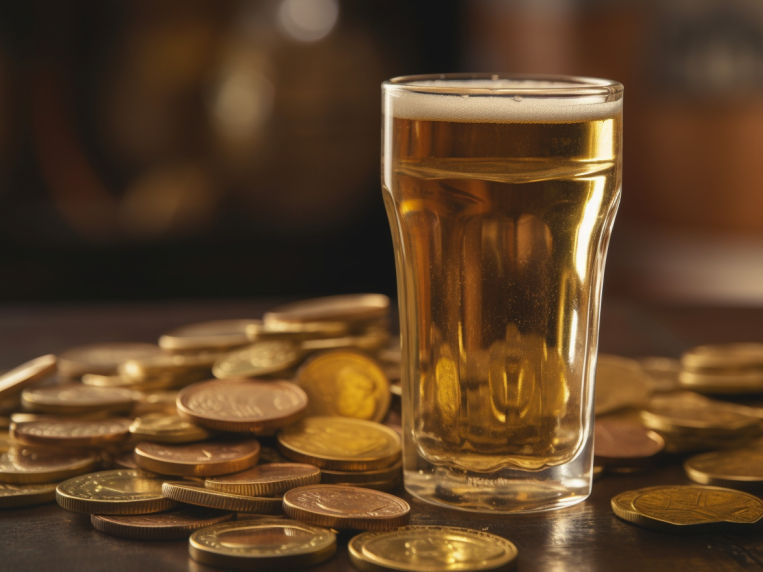Expensive beer cartel: 50-million-euro fine for Carlsberg
The beer has long since been drunk, but the beer price increases of early 2008, which were marked by mousing by brewers, are still occupying the judiciary 15 years later. On Tuesday, the Düsseldorf Higher Regional Court sentenced the brewery Carlsberg <DK0010181759> to a fine of 50 million euros for its involvement in the beer cartel.

Computer generated picture
The 6th Cartel Senate considered it proven that Hamburg-based Carlsberg Deutschland Holding GmbH was guilty of a cartel violation. This was because a former managing director had taken part in an exchange of price-sensitive information between leading German brewers in March 2007. The conversation was "partly responsible" for the one-euro-per-case price increase implemented by Carlsberg and other breweries at the beginning of 2008, said presiding judge Ulrich Egger.
The then managing director of Carlsberg Deutschland Holding had used this knowledge and aligned the brewery's market behavior accordingly. In this way, he was able to act more confidently vis-à-vis the Danish parent company and to implement the price increase in 2008 more easily and with greater certainty vis-à-vis the catering trade and food retailers.
The verdict was preceded by an agreement between the parties to the case, which provided for a fine of 45 to 55 million euros. However, in her closing argument, Carlsberg's lawyer, Anika Schürmann, once again explicitly rejected the accusations against the company. "In the end, from our point of view, there should have been an acquittal," she said. The company had only agreed to the plea bargain so that it could finally draw a line under the burdensome and costly mammoth proceedings.
In fact, the proceedings have demanded maximum endurance from all parties involved. In 2013 and 2014, the German Federal Cartel Office had already imposed fines totaling more than 330 million euros on numerous well-known breweries such as Krombacher, Bitburger, Warsteiner, Veltins, Radeberger and Carlsberg for illegal price fixing. The competition authorities wanted 62 million euros from Carlsberg alone. According to the Bundeskartellamt's findings, the breweries had colluded in 2007 and raised prices almost in lockstep at the beginning of 2008.
Unlike most other breweries, however, Carlsberg did not accept the Bundeskartellamt's decision and lodged an appeal with the Düsseldorf Higher Regional Court. What followed was a nerve-racking judicial marathon. It is true that Carlsberg was initially successful, as the Düsseldorf Higher Regional Court discontinued the proceedings against the brewery in 2019 on the grounds that the allegations were time-barred. But this decision was completely overturned by the Federal Court of Justice a year later. The case then had to be retried before another antitrust panel in Düsseldorf. Here, the serious illness of a judge then caused an additional delay at the beginning of 2021. The proceedings had to be broken off after more than 20 days of hearings and started all over again.
Was all the effort worthwhile for Carlsberg? That is debatable. The Cartel Senate came to the conclusion that the behavior of the managing director did not constitute a prohibited price agreement. However, the Senate did consider that there had been a deliberate infringement of the antitrust regulations in the form of concerted practices. In the end, the fine was also somewhat lower than originally set by the Federal Cartel Office.
On the other hand, the legal process of coming to terms with the events of 2007 and 2008 is unlikely to be over for Carlsberg even with the ruling of the Düsseldorf Higher Regional Court. For the brewing giant must now reckon with being sued for damages by the trade for its involvement in the cartel./rea/DP/jha (dpa)
Note: This article has been translated using a computer system without human intervention. LUMITOS offers these automatic translations to present a wider range of current news. Since this article has been translated with automatic translation, it is possible that it contains errors in vocabulary, syntax or grammar. The original article in German can be found here.































































